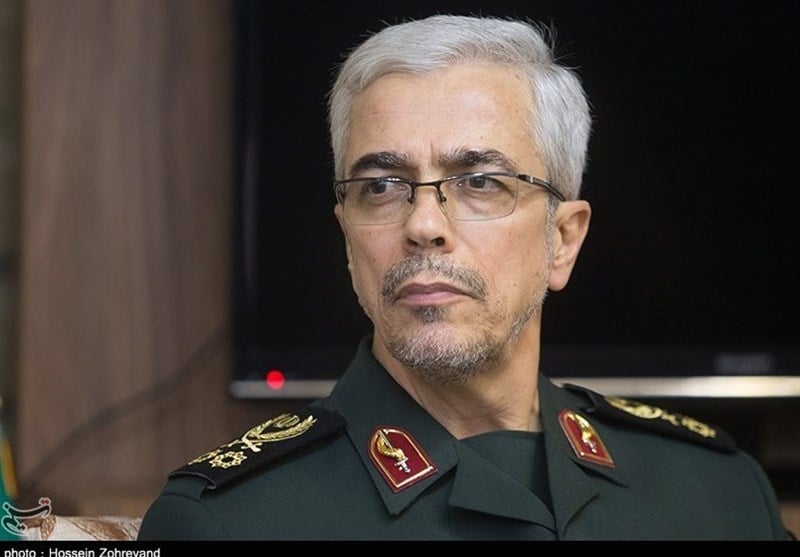He expressed the concern in a telephone conversation with the Pakistan’s Chief of Army Staff General Qamar Javed Bajwa on Saturday.
During the talks, General Baqeri said taking military approaches in this region will make the situation more complicated.
General Baqeri further discussed the latest security situation at the joint borders, military-security relations between the Islamic Republic of Iran and the Islamic Republic of Pakistan, regional developments and especially the situation in Kashmir.
Congratulating his Pakistani counterpart on Eid-al Adha, the Iranian top general highlighted the need to remain calm to manage the events in Kashmir.
“We hope that through political efforts, we will secure the real rights of the Muslim people of the region and avoid hurting the sentiments of the Muslim nations,” he added.
He also expressed regret over the current political and security situation in Afghanistan, saying that the current situation was caused by foreign intervention, especially by Western and trans-regional powers.
He said the current situation has caused more and more abuse by the terrorist groups in Afghanistan.
Therefore, he added, Afghanistan’s neighbours should, for their part, assist the Afghan government in bringing back peace and security to the region.
Pakistan’s Chief of Army Staff also expressed his gratitude to the Islamic Republic of Iran for its care for the Muslims saying that “we will try to make the joint borders of the two countries be the borders of peace and friendship for the people of the two countries, and we will do our best in this regard.”
Pakistan reacted with fury this week after India revoked the special status for the portion of Kashmir that it controls, calling the action illegal, a claim New Delhi denies.
“The parties are expected to refrain from any hasty decision on the fate of the (Kashmir) region, without regards to the people’s will,” General Baqeri was quoted by Fars as telling Pakistan’s army chief by telephone.
Seeking to tighten its grip on the region also claimed by neighbouring Pakistan, India this week scrapped Jammu and Kashmir’s right to frame its own laws and allowed non-residents to buy property there.
Regional leaders have warned of a backlash in the area, where militants have been fighting Indian rule for nearly 30 years, leading to the deaths of more than 50,000 people.
Nuclear-armed neighbours India and Pakistan have fought two of their three wars over Kashmir and engaged in an aerial clash in February after a militant group based in Pakistan claimed responsibility for an attack on an Indian military convoy.
India has long accused Pakistan of funding and harbouring the groups. Islamabad denies this, saying it provides only diplomatic and moral support to non-violent separatists on the Indian side.
